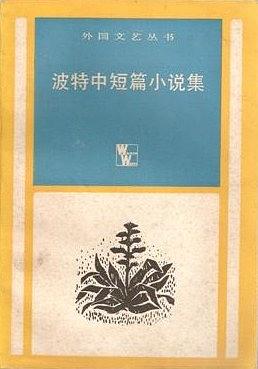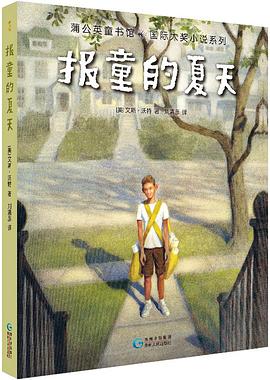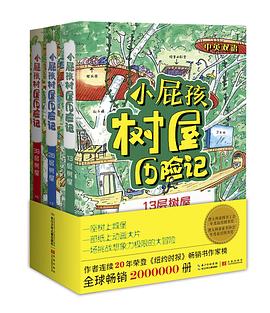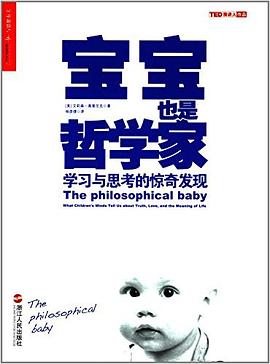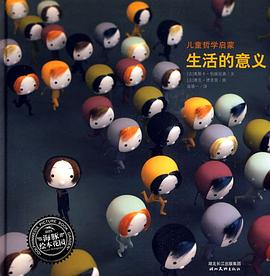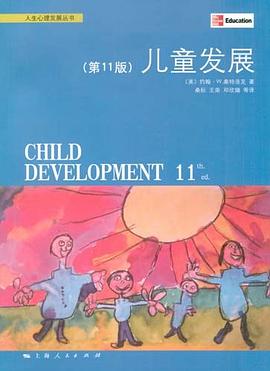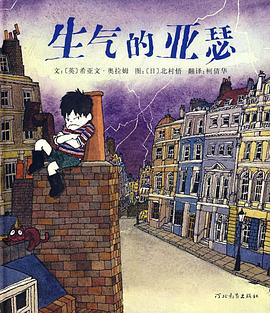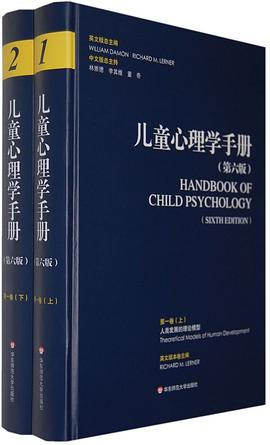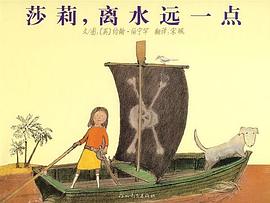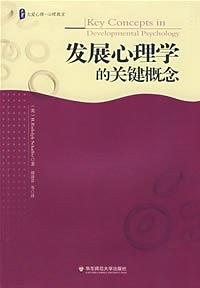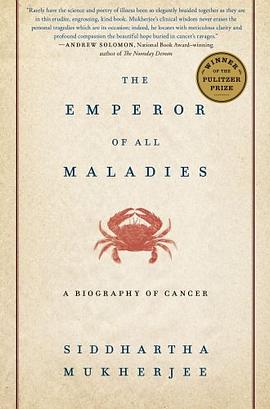

具體描述
The Emperor of All Maladies is a magnificent, profoundly humane “biography” of cancer—from its first documented appearances thousands of years ago through the epic battles in the twentieth century to cure, control, and conquer it to a radical new understanding of its essence. Physician, researcher, and award-winning science writer, Siddhartha Mukherjee examines cancer with a cellular biologist’s precision, a historian’s perspective, and a biographer’s passion. The result is an astonishingly lucid and eloquent chronicle of a disease humans have lived with—and perished from—for more than five thousand years.
The story of cancer is a story of human ingenuity, resilience, and perseverance, but also of hubris, paternalism, and misperception. Mukherjee recounts centuries of discoveries, setbacks, victories, and deaths, told through the eyes of his predecessors and peers, training their wits against an infinitely resourceful adversary that, just three decades ago, was thought to be easily vanquished in an all-out “war against cancer.” The book reads like a literary thriller with cancer as the protagonist.
From the Persian Queen Atossa, whose Greek slave may have cut off her diseased breast, to the nineteenth-century recipients of primitive radiation and chemotherapy to Mukherjee’s own leukemia patient, Carla, The Emperor of All Maladies is about the people who have soldiered through fiercely demanding regimens in order to survive—and to increase our understanding of this iconic disease.
Riveting, urgent, and surprising, The Emperor of All Maladies provides a fascinating glimpse into the future of cancer treatments. It is an illuminating book that provides hope and clarity to those seeking to demystify cancer.
著者簡介
Siddhartha Mukherjee is a cancer physician and researcher. He is an assistant professor of medicine at Columbia University and a staff cancer physician at the CU/NYU Presbytarian Hospital. A former Rhodes scholar, he graduated from Stanford University, University of Oxford (where he received a PhD studying cancer-causing viruses) and from Harvard Medical School. His laboratory focuses on discovering new cancer drugs using innovative biological methods. Mukherjee trained in cancer medicine at the Dana Farber Cancer Institute of Harvard Medical School and was on the staff at the Massachusetts General Hospital. He has published articles and commentary in such journals as Nature, New England Journal of Medicine, Neuron and the Journal of Clinical Investigation and in publications such as the New York Times and the New Republic. His work was nominated for Best American Science Writing, 2000 (edited by James Gleick). He lives in Boston and New York with his wife, Sarah Sze, an artist, and with his daughter, Leela.
圖書目錄
讀後感
1、“我们相信上帝,但其他人必须用数据说话。。”ipad版p250 2、叶酸抗结剂治疗白血病的故事。。 3、p253,医生目的不是挽救特定人,而是挽救所有人的生命。 4、苏珊桑塔格,疾病的隐喻 5、p263,狮子,狗,人类是仅知的会发生前列腺癌的动物。p265,化学阉割。 6、p285,再次...
評分还没地方买,中信出版的书以图快为重点,翻译的书评差的一塌糊涂,以前看过的《黑天鹅》<《货币崛起》等十几本图书都翻译的极差,大段漏译,错译。 不过佛格森的《帝国》翻译的尚可。我习惯拿着中文译本听英语语音版。等我读完再评价翻译水平。
評分2013年快过去3个月了,看了一堆书,这是第一本好书。 首先,作者很会讲故事,运用了很多小说上的技术,使人如看侦探小说。 其次,翻译流畅,李虎老师的翻译很流畅,没有磕磕盼盼的地方。 最后,这本书的装帧很喜欢。
評分很早就看完了,一直想要找个时间写这本书的书评,由于准备考研一直就把这个给拖后了。或许很多细节记得不是那么清楚了,我只想写写我看这本书的整个过程。 爸是在今年3月份查出癌症的,之前一直医生误以为是由于肾结石引起的左肾肿大变形,直到最后把左肾切除后做了活检才发现...
評分本书的作者有一个非常有禅意的名字,悉达多,与释迦牟尼本人一个名字。相同的名字之外,两者都在往生者和现世人中穿梭,试图捕捉生死无常的真相。读《众病之王-癌症传》有一个多月,被这个疾病的各种意向俘虏。它带来的表象与隐喻,历史与现在,雄心与挫败,民生与政治,孜孜不...
用戶評價
外婆因癌癥去世後終於鼓起勇氣讀瞭這本書。最深刻的認識是,癌癥既是醫學/科學問題,也是政治課題,還有著相當重要的經濟意義。尋找治療癌癥的方法離不開醫生,科學傢,遊說傢,政客,和商人的共同投入。從某種程度上來說,這本書給瞭我一個和外婆告彆的機會,讀完之後心理上得到瞭一定的結束感
评分癌癥史/普利策
评分超級科普卻又不失閱讀樂趣的醫學巨著,不愧是普利策將得主!
评分超級科普卻又不失閱讀樂趣的醫學巨著,不愧是普利策將得主!
评分超級科普卻又不失閱讀樂趣的醫學巨著,不愧是普利策將得主!
相關圖書
本站所有內容均為互聯網搜索引擎提供的公開搜索信息,本站不存儲任何數據與內容,任何內容與數據均與本站無關,如有需要請聯繫相關搜索引擎包括但不限於百度,google,bing,sogou 等
© 2025 book.quotespace.org All Rights Reserved. 小美書屋 版权所有

